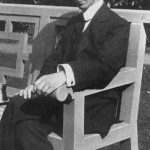Hearing the silence
...rience it in the same way? I see a voice This is the question addressed in Jonathan Réeʼs remarkable study of the history and philosophical implications of deafness, I See a Voice.* The Sirens do not feature in Réeʼs book, but the myth can be used to articulate some of its recurring themes. The central, and by far the longest, section of I See a Voice is devoted to a history of deaf education from the seventeenth century to the present. This is fo...









